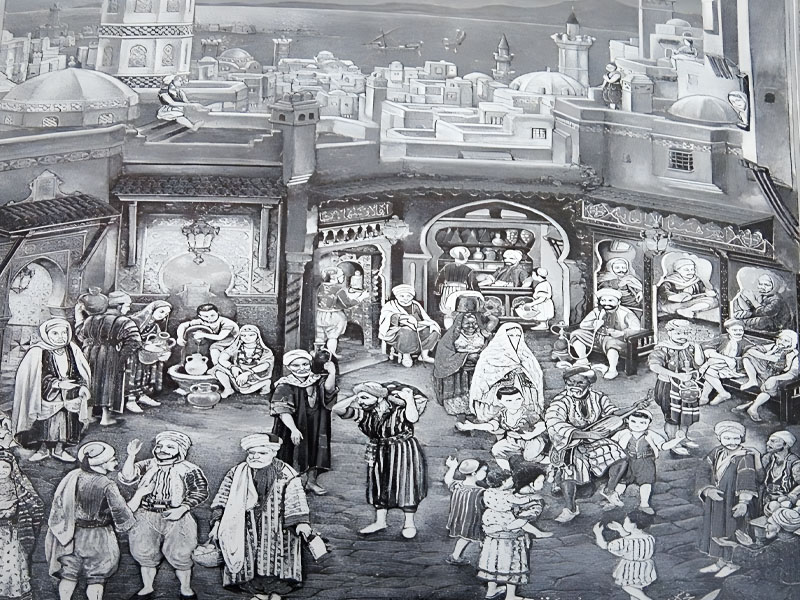Rituals and Practices Related to the New-born In the Casbah Of Algiers
Issue 57

By Skumi Fatima, PhD in Anthropology
Research Professor at the National Centre for Prehistoric, Anthropological and Historical Research (CNRPAH)
Arab folk beliefs varied. They were geographically and historically distinct, and they had an influence on both the human imagination and reality. In Arab folk communities, it is common to cling to the ancient past and its entrenched features.
The conventions that have survived include the rites associated with the birth of a child. Every community has both its own unique characteristics and things that it shares with other communities. The Casbah in Algeria has a unique community and I had the opportunity to live in close proximity to it for more than a decade.
The research topic is significant because it stems from the fact that it belongs to the category of folk beliefs that represent an old civilisation. My aim is to clarify some of its characteristics, to explain their significance, and to identify and collect elements while competing against time. Deportation has affected hundreds of families, and it continues to do so. The fear that buildings will collapse due to factors such as the erosion of walls and the deterioration of staircases is a real threat to the families’ lives.
As a result, I attempted to find a solution before all is lost because the cultural legacy is struggling to survive in the face of rapid change.
I limited my study to the Casbah in Algeria because I lived in this community throughout the stages of motherhood and women were available to advise, warn and teach me.
These recommendations and cautions have implicit values, and the women of the Casbah consider them preventative measures that protect and heal the newborn in the event of an illness. Observations were made and documented, and they represent the perspectives of the women who were eager for me to follow their advice.
Women's advice begins with pregnancy, and we found that some individuals hid their pregnancies from neighbours and even relatives for as long as possible because they feared envy and the eye.
They also frequently predict the gender of the foetus without the aid of a gynaecologist. Many women in the Casbah can detect a foetus’ gender from the shape of the mother’s abdomen. In addition, if a male baby appears in a dream, it means that the pregnant woman will have a girl, and vice versa.


































































